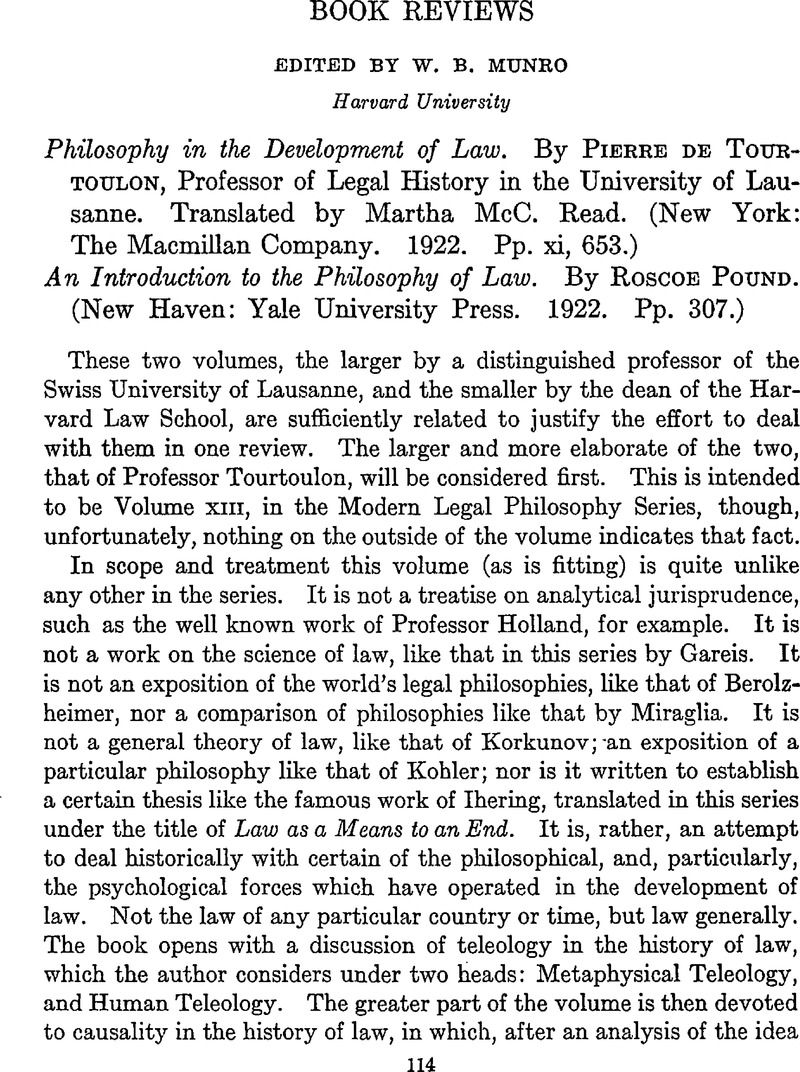No CrossRef data available.
Published online by Cambridge University Press: 01 August 2014

1 Thus, for example, when on page 188, it is said that men must be able to assume “(a) that their fellow men will make good reasonable expectations created by their promises or other conduct,” does this mean that if, by my conduct in establishing my business at a certain place, I arouse “reasonable expectations” that I shall continue it indefinitely in the future, it should be the law that I may not discontinue it under any circumstances?;” or “(b) that they will carry out their undertakings according to the expectation which the moral sentiment of the community attaches thereto,” does this mean that if a water company agrees to supply water for certain stipulated rates it must later reduce its rates because “the moral sentiment of the community” attaches to the contract such an expectation?; or “(d) that they will restore in specie or by equivalent what comes to them by mistake or unanticipated situation whereby they receive what they could not have reasonably expected to receive under such circumstances,” does this mean that if I buy land and later, unexpectedly to me, an important industry is established near by, and, as a consequence, the land takes on an unexpected value, I must “restore in specie or by equivalent” this unexpected value to my grantor or to the owners of the industry which caused it?
Comments
No Comments have been published for this article.